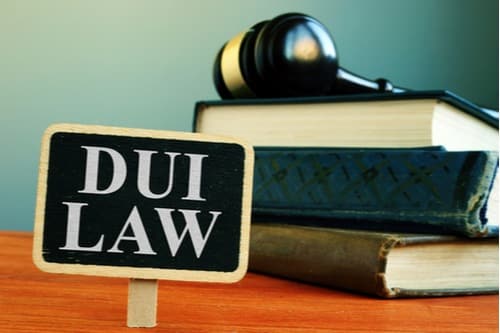In order to secure a conviction for drunk driving in South Carolina, prosecutors must prove the defendant’s guilt beyond a reasonable doubt. If prosecutors cannot meet this “burden of proof,” then it doesn’t matter whether or not the defendant was actually drunk behind the wheel. In fact, after the prosecution rests, the defendant doesn’t even need to put on a defense. If the prosecution’s case is insufficient, then the defendant is entitled to a “not guilty” verdict as a matter of law.
So, what does it take for prosecutors to prove a drunk driving charge in South Carolina?
While the “beyond a reasonable doubt” standard presents a high burden, prosecutors in South Carolina regularly secure drunk driving convictions. They know what it takes to win in court, and they have the resources they need to get the job done. As a result, if you are facing a drunk driving charge in South Carolina, you need to be prepared to defend yourself, and this starts with understanding what prosecutors must prove in order to convict you.
Proving a DUI Charge
There are two different types of drunk driving charges under South Carolina law. One is called driving under the influence (DUI), and the other is called driving with an unlawful alcohol concentration (DUAC).
The crime of driving under the influence is defined in Section 56-5-2930 of the South Carolina Code of Laws. This statute provides that:
“It is unlawful for a person to drive a motor vehicle . . . while under the influence of alcohol to the extent that the person’s faculties to drive a motor vehicle are materially and appreciably impaired . . . .”
If we break South Carolina’s DUI statute down into its “elements,” in order to secure a conviction, prosecutors must prove that:
- You were driving a motor vehicle;
- You were under the influence of alcohol; and,
- Your ability to drive was “materially and appreciably impaired.”
In most DUI cases, whether or not you were driving a motor vehicle won’t be an issue. The vast majority of DUI arrests result from police officers pulling drivers over on South Carolina’s public roads. However, there are some exceptions. For example, if you were parked when the police approached your vehicle, then you might have an argument that you were not “driving” for purposes of South Carolina’s DUI law.
In order to prove that you were under the influence of alcohol, prosecutors will most likely try to introduce your blood alcohol concentration (BAC) reading as evidence in court. However, as you may have noticed, the DUI statute does not require you to have a BAC of 0.08% or above. Thus, if you refused the breath test, if your breath test result is unreliable, or even if you blew below 0.08%, it may still be possible for prosecutors to prove that you were “under the influence” through other means. For example, your arresting officer may testify as to his or her observations, or the officer’s dash camera footage may show you stumbling after you exited your vehicle.
The third element of a DUI charge in South Carolina is material and appreciable impairment. Again, proof of a BAC of 0.08% or above is not required. If you were swerving, if you drifted out of your lane, if you were failing to maintain a consistent speed, if you ran a red light or stop sight, or if you were driving significantly above or below the speed limit, these are all facts that prosecutors may be able to use to prove that you were impaired.
Proving a DUAC Charge
While driving with a BAC of 0.08% or above is not an element of a DUI charge in South Carolina, it is a key element of a charge for DUAC. South Carolina’s DUAC statute, Section 56-5-2933 of the Code of Laws, states:
“It is unlawful for a person to drive a motor vehicle within this State while his alcohol concentration is eight one-hundredths of one percent or more. A person who violates the provisions of this section is guilty of the offense of driving with an unlawful alcohol concentration . . . .”
Unlike South Carolina’s DUI law, the DUAC law has just two elements. You can be convicted of DUAC if:
- You were driving a motor vehicle; and,
- Your BAC was 0.08% or greater.
Driving with an unlawful alcohol concentration is what is known as a “per se” offense. This means that as long as you were driving a motor vehicle and your BAC was 0.08% or above, it doesn’t matter whether your driving ability was impaired. It is simply illegal to drive with a BAC of 0.08% or above.
In order to secure a conviction for DUAC, prosecutors must have reliable evidence of your BAC. If you refused a breath test (potentially in violation of South Carolina’s implied consent law), if your BAC was below 0.08%, or if your BAC reading is unreliable for any reason (and you can prove it), then you should not be at risk for a DUAC conviction. However, for this precise reason, prosecutors will frequently pursue DUI charges even if they have evidence of a high BAC.
Given all of this information, what should you do if you’ve been arrested for drunk driving in South Carolina? At this point, you need to discuss your situation with a defense attorney. There are several possible defenses to both DUI and DUAC charges under South Carolina law, and an experienced defense attorney will be able to evaluate the circumstances of your case to determine what defenses you have available.
Schedule a Free Drunk Driving Defense Consultation in Rock Hill, SC
Are you facing a drunk driving charge in Rock Hill, SC? If so, we can help, and we strongly encourage you to contact us right away. To discuss your case with an experienced South Carolina drunk driving defense lawyer in confidence, call 803-328-8822 or get in touch with us online now.

